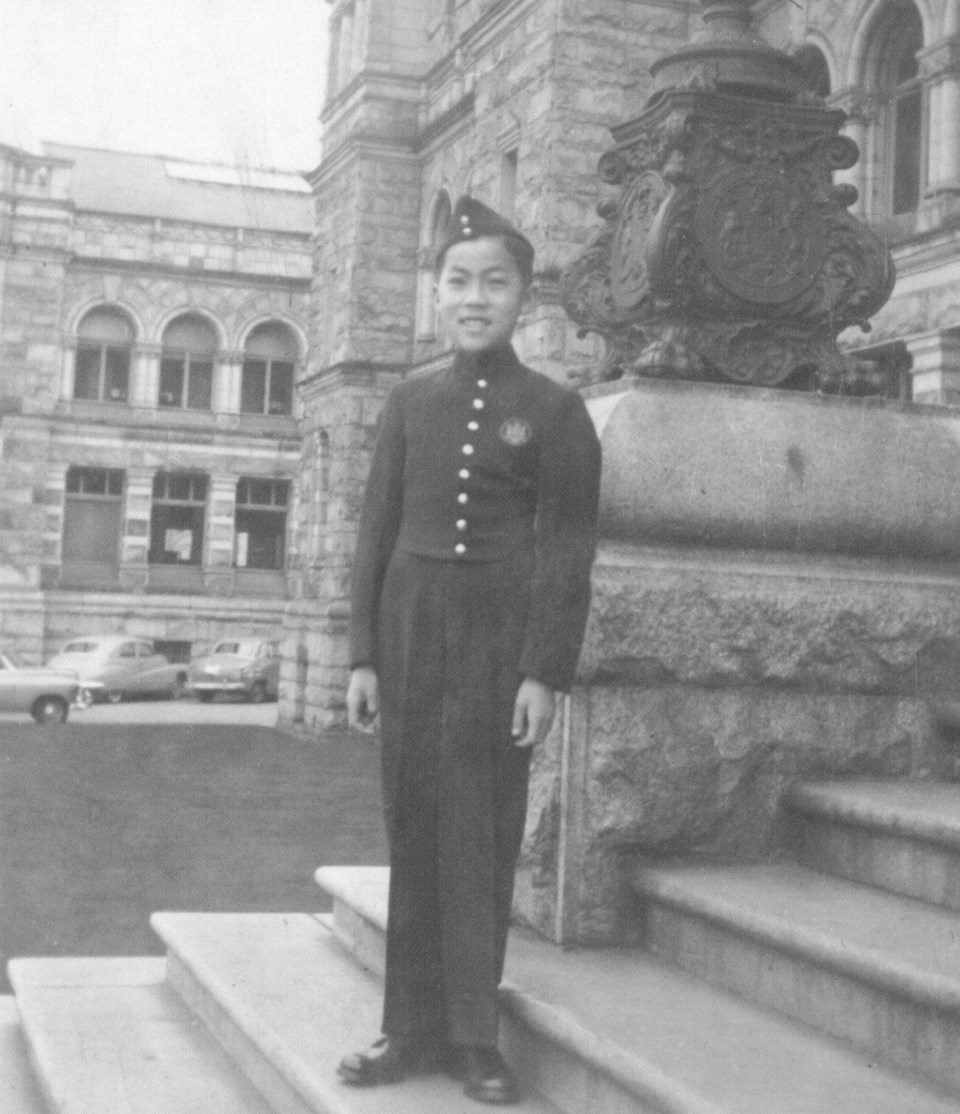What: Movie Monday
Where: Eric Martin Pavilion
When: Monday, 6:30 p.m.
Admission: By donation
Info: 250-595-3542
Howard Lim made headlines at an early age growing up in Victoria. He was only 11 when he was front-page news in 1952 by becoming the first Chinese-Canadian selected as a legislative page.
Other newsworthy items included his becoming Vic High’s student council president, and being granted scholarships and academic awards including a Woodrow Wilson Fellowship.
Before his tragic death in Yonkers, N.Y., at age 54, chances are Lim never imagined he’d also someday inspire a movie.
Howard, part of Movie Monday’s Asian-Canadian short films showcase Monday, is that film — an absorbing, compact tribute by Carolyn Wong, a middle-age niece he never got to know.
(Other entries include Jason Karman’s Kimchi Fried Dumplings and Samuel Kiehoon Lee’s Kimchi According to my Kun-Umma.)
Wong says she’ll never forget the day her mother told her the uncle she hadn’t seen since she was a toddler had been murdered.
“His name hadn’t been mentioned in so long,” the Toronto-based fimmaker recalled. “I had an uncle who was murdered? What? How does someone from a family with no history of crime get murdered?”
Wong was so intrigued, not just by the murder but the mystery surrounding her uncle since he left Victoria, that she felt compelled to make her award-winning short.
It comes a decade after her other award-winning film about another family member she previously knew little about — Yin Yin/Jade Love, her bittersweet valentine to her beloved late grandmother.
She could be forgiven for feeling a sense of trepidation before making Howard, since she took some heat for unearthing some family secrets in the first film that chronicled Yin Yin’s unhappy marriage as “second wife” to her gruff, unsupportive grandfather Jack Lai Fun Wong, a hard-drinking gambler with a “first wife” in China, and other hidden hardships.
Wong would be journeying back in time to when Canadians of Chinese ancestry were still discriminated against, and to reflect on the conflicted life and fate of a “repressed gay man in a Chinese family with not a lot of money,” after all.
“You don’t say the word ‘gay’ in Chinese,” she recalled. “For closeted men in those days, when there was an opportunity to come out, you were shedding your past.”
While his family “accepted him for who he was” without overtly acknowledging Lim’s sexuality, Wong said no one is sure why he never returned to Victoria.
“I wrote a letter and explained what I was doing and they were open to it,” she said. “They said, ‘Hey, you’ll probably find out more than we know.’ ”
Indeed she did. As noted in her taut, self-narrated film, it was a friend’s determination to locate Lim’s next-of-kin that made his family aware of what had happened to the Victoria native whose brother once considered hiring a private investigator to find him. Wong uses this as a jumping-off point to shed light on her openly-gay uncle’s life in the U.S., effectively interweaving Super 8 home-movie footage, video, news clippings and her own footage of iconic New York landmarks such as Times Square and Rockefeller Center on exploratory trips.
Her impressionistic 18-minute film recounts how he was stabbed to death on April 12, 1995. He was killed by someone from his neighbourhood who had asked him for money in Yonkers, where the student of Zen Confucianism had become actively involved in the Zen community, helping underprivileged people through his work with the non-profit Greyston Foundation.
The film also reflects on how Lim, a deep thinker wise beyond his years from an early age, was a smart, gentle, tireless and gracious humanitarian “troubled with piety and self-worth,” which Wong said drove him to success in business and social work before leading to self-destructive behaviour. His achievements included earning a doctorate in psychology at Stanford University in the 1960s, holding management positions with General Foods and J.C. Penney in the U.S., and being held in high regard by co-workers at the Greyston Bakery. The company, founded in 1982 by Zen Buddhist Bernie Glassman, funded initiatives such as community daycare, low-income housing and a medical centre for people with HIV/AIDS through its foundation.
“He couldn’t be ignored,” said Wong, who will be attendance.



